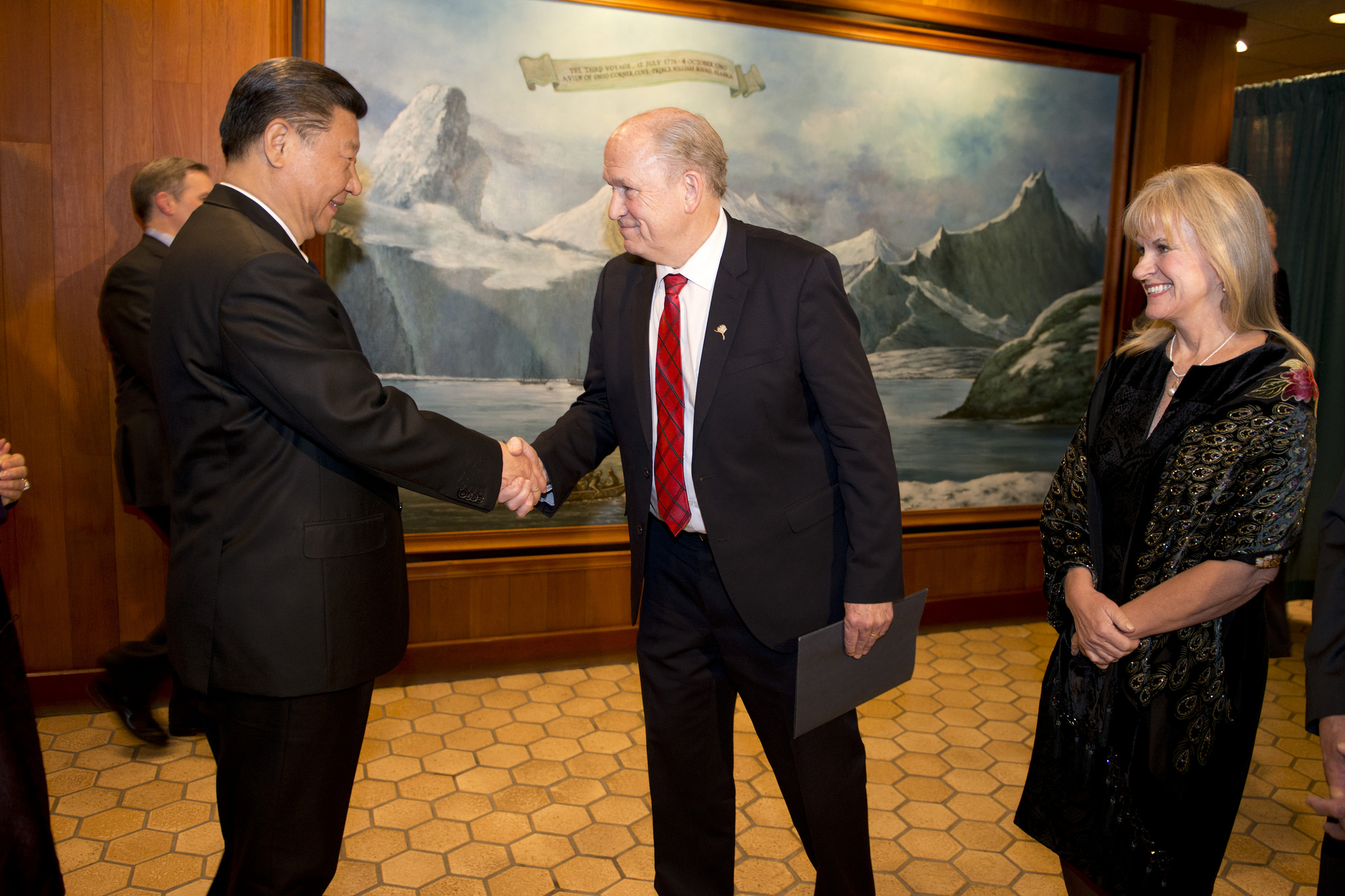Alaska’s Arctic gasline could fall victim to a Trump trade war with China
ANALYSIS: Trump's escalation of a trade dispute with China could scuttle a deal to build an Alaska pipeline with the backing of Chinese investors.

If President Donald Trump follows through on his threat to ramp up a trade war with China, a deal to build a natural gas pipeline linking Alaska’s Arctic to a liquefaction plant and shipping facilities further south could be collateral damage.
At a minimum, Trump has added delay, uncertainty and new threats to the project.
Trump said Thursday he intends to levy $60 billion in tariffs against the Chinese — a suspect number because the White House staff told reporters the same day the figure would be $50 billion — and pledged new restrictions on Chinese investment in the U.S., a posture that his administration is playing up as a major shift in the way the U.S. deals with China.
Instead of trying to get along with the Chinese, Trump is picking a fight, echoing the inflated rhetoric of his campaign and walking away from the conciliatory approach he took last fall in Beijing.
China responded to Trump’s first tariff announcement — limited to steel and aluminum — with a $3 billion retaliatory plan of its own that could just be an opening shot. It’s not clear where the tit-for-tat would end.
Adding more instability is the behavior of Chinese President Xi Jinping, who has set himself up as a dictator for life, with the abolition of presidential term limits.
The back-and-forth bickering does not bode well for building the trust necessary to complete contracts within the next year for a gas pipeline that has been a dream of Alaska politicians and business leaders for two generations.
Larry Persily, a former newspaperman and former federal coordinator of gasline projects, has monitored Alaska’s efforts to sell gas for decades. He says the looming trade war is a big setback for a project already handicapped by high costs and tough competition.
“Trump’s antagonism toward China is not helpful when you are trying to get Chinese companies to write billions of dollars in checks. It’s like inviting guests to a fundraiser, insulting them, then asking them to make a donation,” said Persily. “Come to think of it, that is exactly how Trump operates.”
China has multiple options to secure gas supplies in the next decade, but Alaska does not have a surplus of customers willing to finance the venture and promise to buy gas for decades.
The Walker administration will still say it hopes to strike a deal to sell trillions of cubic feet of natural gas to China, but its negotiating position just got noticeably weaker because of the chaos in the White House.
Walker is planning a trade mission to China in May with officials from various Alaska industries.
While this natural gas project could fit well with the China’s “Polar Silk Road” initiative in the Arctic, Trump’s posturing could easily derail any strategy developed in Alaska.
The Trump administration wants to portray China not as a nation the U.S. wants to do business with, but as a bad actor that deserves to be punished for economic aggression.
The best hope for the gas pipeline is that Trump, who has made lying and contradicting himself a part of his presidential routine, may not mean what he says about China, but just wants to appear tough.
The president has already flip-flopped on a large chunk of the steel tariffs he announced in early March — exempting imports from countries that supplied more than half of the steel imported to the U.S. a year ago from the 25 percent tariff.
With this chaotic and confusing backdrop, it’s hard to see how Alaska can position itself to win favorable financial commitments from the Chinese government on a $43 billion gas pipeline project that major oil companies regard as a questionable moneymaker.
After signing preliminary agreements to try and negotiate a package in November, Alaska officials played up the idea that the project had the support of the leaders of both nations, who attended the ceremony in the Great Hall of the People.
The Alaska Gasline Development Corp. insists that the “stars are aligned” for the project, but it should stop using that tired term, which has been trotted out many times in the past for projects that failed.
Dermot Cole, who has written about Alaska politics for 40 years, lives and works in Fairbanks. He can be reached at de*********@gm***.com.
The views expressed here are the writer’s and are not necessarily endorsed by ArcticToday, which welcomes a broad range of viewpoints. To submit a piece for consideration, email commentary (at) arctictoday.com.